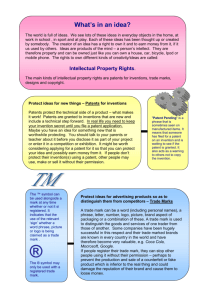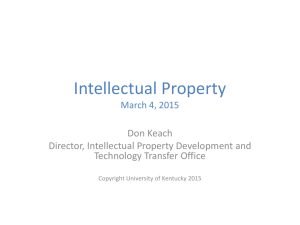Document 10886011
advertisement
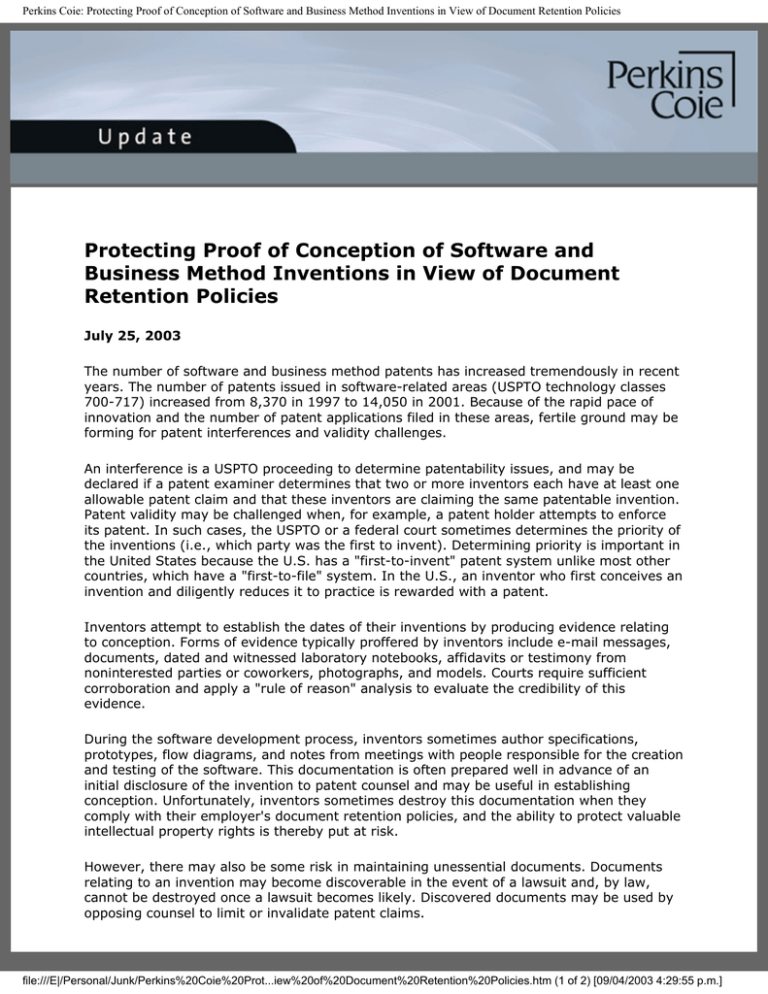
Perkins Coie: Protecting Proof of Conception of Software and Business Method Inventions in View of Document Retention Policies Protecting Proof of Conception of Software and Business Method Inventions in View of Document Retention Policies July 25, 2003 The number of software and business method patents has increased tremendously in recent years. The number of patents issued in software-related areas (USPTO technology classes 700-717) increased from 8,370 in 1997 to 14,050 in 2001. Because of the rapid pace of innovation and the number of patent applications filed in these areas, fertile ground may be forming for patent interferences and validity challenges. An interference is a USPTO proceeding to determine patentability issues, and may be declared if a patent examiner determines that two or more inventors each have at least one allowable patent claim and that these inventors are claiming the same patentable invention. Patent validity may be challenged when, for example, a patent holder attempts to enforce its patent. In such cases, the USPTO or a federal court sometimes determines the priority of the inventions (i.e., which party was the first to invent). Determining priority is important in the United States because the U.S. has a "first-to-invent" patent system unlike most other countries, which have a "first-to-file" system. In the U.S., an inventor who first conceives an invention and diligently reduces it to practice is rewarded with a patent. Inventors attempt to establish the dates of their inventions by producing evidence relating to conception. Forms of evidence typically proffered by inventors include e-mail messages, documents, dated and witnessed laboratory notebooks, affidavits or testimony from noninterested parties or coworkers, photographs, and models. Courts require sufficient corroboration and apply a "rule of reason" analysis to evaluate the credibility of this evidence. During the software development process, inventors sometimes author specifications, prototypes, flow diagrams, and notes from meetings with people responsible for the creation and testing of the software. This documentation is often prepared well in advance of an initial disclosure of the invention to patent counsel and may be useful in establishing conception. Unfortunately, inventors sometimes destroy this documentation when they comply with their employer's document retention policies, and the ability to protect valuable intellectual property rights is thereby put at risk. However, there may also be some risk in maintaining unessential documents. Documents relating to an invention may become discoverable in the event of a lawsuit and, by law, cannot be destroyed once a lawsuit becomes likely. Discovered documents may be used by opposing counsel to limit or invalidate patent claims. file:///E|/Personal/Junk/Perkins%20Coie%20Prot...iew%20of%20Document%20Retention%20Policies.htm (1 of 2) [09/04/2003 4:29:55 p.m.] Perkins Coie: Protecting Proof of Conception of Software and Business Method Inventions in View of Document Retention Policies Employers should periodically remind inventors to retain essential documents that may demonstrate conception even if such documents serve no currently useful purpose. These documents may need to be preserved for a time even after a patent issues. For more information, please contact the Perkins Coie attorney with whom you work or Rajiv Sarathy at (206) 359-6478; Christopher Daley-Watson at (206) 359-6384; Maurice Pirio at (206) 359-8548; or Brian Coleman at (650) 838-4441. This Update provides general information and not legal advice or opinions on specific facts. If you would like to be added to our mailing list to receive future updates, please send an e-mail with ADD in the subject line, or if you do not wish to receive future updates, please send an e-mail with REMOVE in the subject line, in either case, to crfeedback@perkinscoie.com. file:///E|/Personal/Junk/Perkins%20Coie%20Prot...iew%20of%20Document%20Retention%20Policies.htm (2 of 2) [09/04/2003 4:29:55 p.m.]

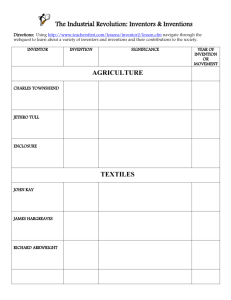
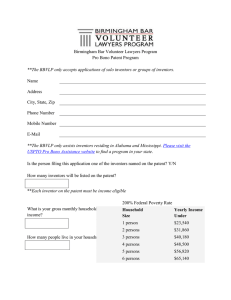
![Introduction [max 1 pg]](http://s3.studylib.net/store/data/007168054_1-d63441680c3a2b0b41ae7f89ed2aefb8-300x300.png)
